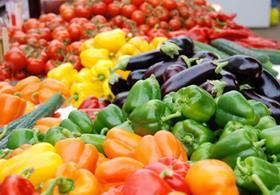
Producers and exporters in the Netherlands expect to face a major struggle over the coming weeks following Russia's decision to impose a blanket ban on all fresh vegetable shipments from the EU in the wake of the E.coli crisis.
On Thursday, 2 June, leading Dutch export organisation Frugi Venta confirmed that Russian customs officials had begun turning away trucks carrying European vegetables, while retailers were obliged to take product off their shelves.
Meanwhile in Russia itself importers told Eurofruit the pan-continental nature of the ban made circumventing border controls – as has been achieved in the past through the Baltic states – much harder.
The blockade was also likely to have a major impact on prices, they predicted, with oversupply pushing them down in Europe and a lack of imported volumes pushing them up in their own country.
Dutch vegetable exports to Russia were worth around €150m in 2010, according to horticultural body Productschap Tuinbouw, forming a significant proportion of the €600m-€700m in total annual sales of vegetables to the market.
Elena Malkova of Dutch company Hillfresh, told Eurofruit the ban was a 'big blow' for Dutch exporters.
'There are a lot of tomatoes of all sorts and caps which are on the way to Russia and have to be returned to the senders now,' she said. 'Also, all of the planned departures cannot take place.'
Nico van Ruiten, chairman of Dutch horticultural association LTO Glaskracht Nederland, underlined the importance of Russia to the Dutch and European vegetable sectors.
'The Russian import ban on fresh vegetables from Europe is a new setback for the entire greenhouse sector. After Germany and the UK, Russia is our main market.'
The ban, which came on a national holiday in the Netherlands and many other European countries, had compounded the E.coli crisis dramatically, he commented.
'Every study has shown there is nothing wrong with our vegetables, but the Russians have made things more complicated with an import ban on all fresh vegetables. The market crisis is taking on dramatic proportions.'
Mr Van Ruiten was also keen to reassure the general public about the safety of fresh vegetables produced in the EU.
'The very important message to consumers is that there is nothing wrong with vegetables and that the source of contamination apparently lies elsewhere,' he claimed.
'Governments and institutions too need to communicate that clearly. Getting back to normal market conditions, that's what comes first.'
He added: 'The European Commission, given the urgency of the situation, might look at `the possibility of earmarking` financial aid from an emergency fund.'
In the Netherlands, state secretary of economic affairs, agriculture and innovation Henk Bleker, who cancelled a planned visit to India to deal with the crisis, confirmed that the Dutch government was working on a compensation scheme for growers affected financially by the E.coli scare.
He also revealed he would be sending Russian officials 'as much information as possible' to convince them that Dutch vegetables are safe.






No comments yet